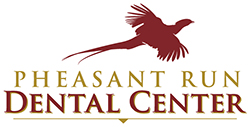Dental Bridges
What is a dental bridge?
If you are missing one or more teeth, a dental bridge is used to “bridge” the gap. Dental bridges are made of dental crowns and rely on existing teeth to anchor the bridge. The teeth that anchor the bridge are known as abutment teeth. Dental implants may also be used to support a dental bridge.
Dental bridges tend to last from 5 to 15 years, depending on your oral hygiene and wear-and-tear.
Why is a dental bridge necessary?
Missing teeth leave open gaps in your mouth, which have both technical and cosmetic consequences.
While chewing and biting, the gap in your teeth may cause strain on your other teeth. While speaking, the missing teeth may cause speech problems. The gap from missing teeth may also cause other teeth to drift out of position.
Cosmetically speaking, dental bridges restore your smile and maintain the shape of your face.
Types of dental bridges
There are three types of dental bridges: traditional, cantilever, and Maryland bonded. Traditional dental bridges are the most common type, usually made of porcelain mused to metal or ceramics. Traditional dental bridges use a crown for the missing tooth. Cantilever bridges are less common, and are not recommended for use in the back of the mouth, as force may cause them to break. Cantilever bridges are used when there are teeth on only one side of the missing tooth. Maryland bonded bridges (resin-bonded bridges) are often used to replace missing front teeth. The wings of the bridge are bonded to the back sides of the teeth adjacent to the gap.
Caring for your dental bridge
Just as with your regular teeth, your dental bridge is maintained by regular brushing and flossing, as well as the use of antibacterial mouthwash.
The dental bridge relies on the strength of your surrounding teeth, so it is important to continue good oral hygiene practice to prevent tooth decay and gum disease.
Schedule an appointment
If you would like to schedule an appointment or learn more about our practice and/or services, please call (701) 577-3333 or click below.
